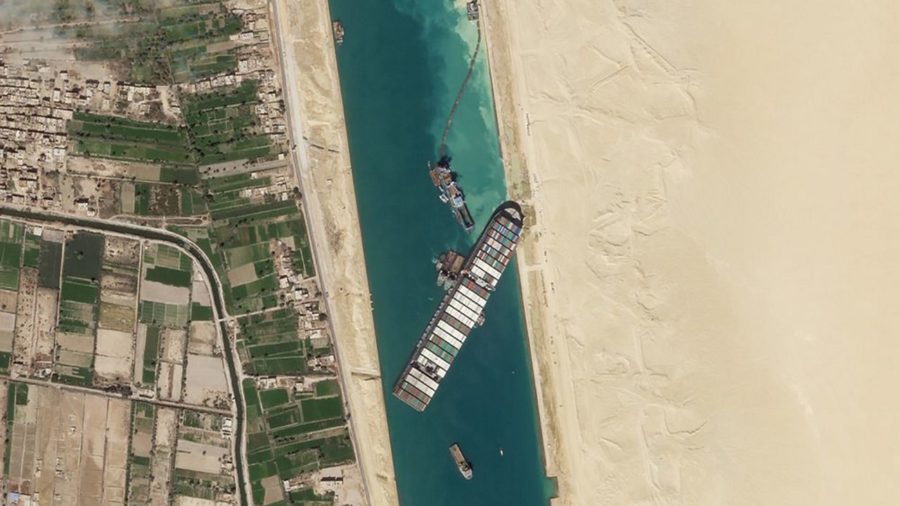Suez Canal Cleared After Six Day Long Blockage
March 31, 2021
The Suez Canal in Egypt is a vital pathway for countless cargo ships traveling through the Mediterranean Sea. It is responsible for carrying about 13% of world trade. On Mar. 23, it was blocked by the 1,300-foot-long Evergreen cargo ship named Ever Given, creating the world’s heaviest traffic jam.
A fleet of excavators dredged for two days to free the 220,000-ton Ever Given before partnering with the Dutch company Boskalis.
During the efforts to clear the canal, some shipping companies ordered their vessels to make a detour around the entire continent of Africa, anticipating taking this route to be less time-consuming than waiting for the canal to reopen.
Many civilians gave their thoughts on how they would solve the obstruction. Ideas ranged from digging an entirely new side canal to dismantling the boat. Ultimately, tugboats pushed on the ship’s stern and pulled on its bow to set it in a direction parallel with the canal. In addition, 30,000 cubic meters of sand were removed when working to dislodge the Evergreen ship, changing the depth of the canal.
The artificial waterway was cleared six days later on Mar. 29 after several failed refloating attempts, but the clog will have lasting impacts on global trade.
“We calculate that each day of immobilization could cost global trade $6 billion to $10 billion,” said German insurer Allianz in a statement.
The incident could worsen shipping delays and lead to shortages in consumer goods such as toilet paper and coffee in the U.S. These delays may also raise the prices of energy sources, such as the two million barrels of oil that go through the Suez Canal every day. War-torn Syria was prompted to ration fuel due to a shortage caused by the blockage.
The Evergreen ship is being taken further up the canal into the Great Bitter Lake to be inspected for any mechanical or engine problems and to determine whether it should continue on its initial journey to Rotterdam in the Netherlands. According to the Suez Canal Authority, the wind from a nearby sandstorm may have been a contributing factor in pushing the ship sideways.
“The time pressure to complete this operation was evident and unprecedented,” said Boskalis CEO Peter Berdowski.
Even with the Evergreen vessel out of the way, the backlog of 400 cargo ships trailing behind will take some time to clear.
There is no doubt that the effects of the Suez Canal blockage will continue.
Photo courtesy of NY1.COM

